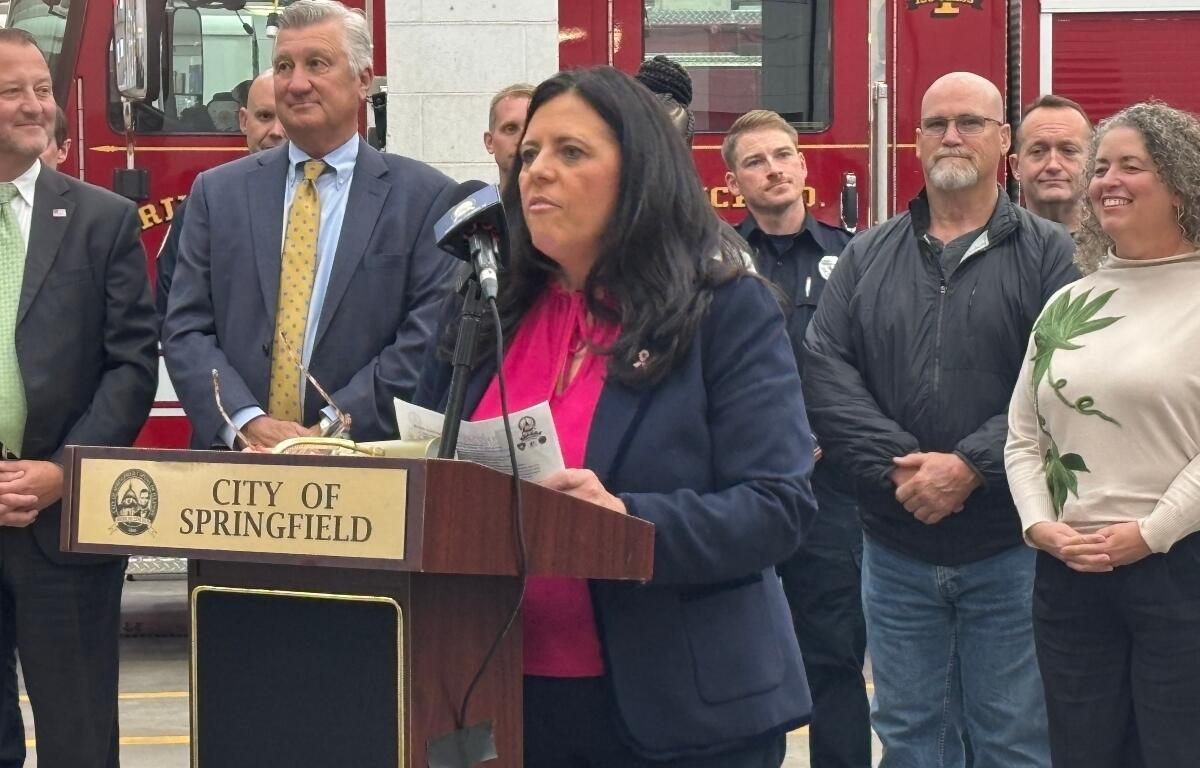Springfield, IL (CAPITOL CITY NOW) – Local leaders reacting to the Sean Grayson verdict include Springfield mayor Misty Buscher (pictured) and State Sen. Doris Turner (D-Springfield).
Grayson was a Sangamon County sheriff’s deputy when he fatally shot Sonya Massey in her home in July 2024. With the aid of his defense of self-defense, a jury convicted him Wednesday afternoon of second-degree murder, a lesser-included felony which will spare him a life prison term.
In an emailed statement, Mayor Buscher said, “Sean Grayson did not just murder Sonya, he took away the life the Massey family once knew.” The statement goes on to say that the city and its police department “remain committed to maintaining public trust, transparency, and accountability in all interactions with the residents we serve. We hold ourselves to the highest standards and will continue to review our own policies and training to ensure every person is treated with dignity and respect.”
Since Massey’s death, city council meetings have almost unfailingly brought public commenters to accuse the police – and sometimes the aldermen – of racism. The facts that the police call was from the county and not the city, and that Massey’s residence was indeed outside the city limits, have never mitigated the withering criticism leveled upon the city and its police force. Incidents such as the treatment of protestors outside the police station and the alleged preferential treatment given a newly-retired cop and DUI suspect whose traffic collision seriously injured two people on a motorcycle have only fueled public scorn.
Not even the makeup of the Peoria County jury hearing the case – no Black women – could escape the criticisms citizens have brought into the Springfield city council chamber.
On the state level, the temperature has not been as high. But there has been action. Turner passed a bill named for Massey through the Illinois General Assembly to tighten the hiring process for police in Illinois. Criticism after Massey’s death alleged a checkered work and personal history should have ended Grayson’s career before Sangamon County could have even hired him. It’s alleged previous employers failed to share information which could have painted Grayson in an unfavorable light.
“While nothing will bring Sonya back, justice has been served,” Turner’s statement begins. “Today’s verdict shows that no one is above the law.”
Grayson faces up to twenty years in prison when he is sentenced Jan. 29, 2026. By that time, he will already have been incarcerated for eighteen months, which will be credited toward his final sentence.



